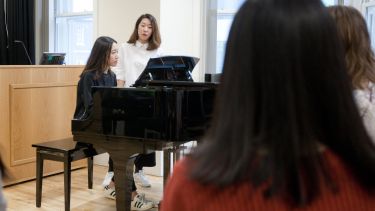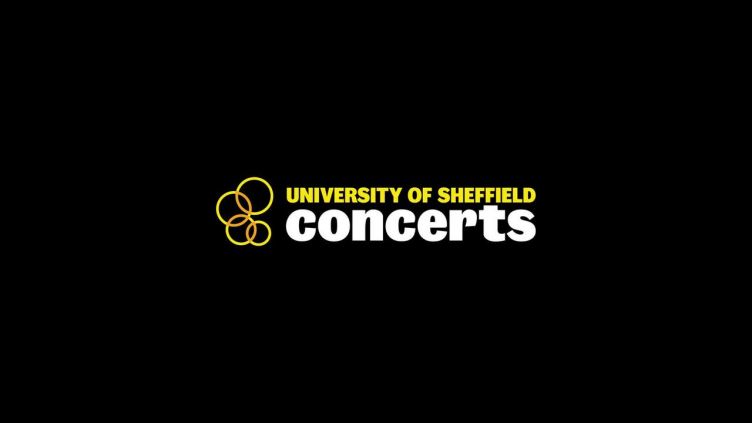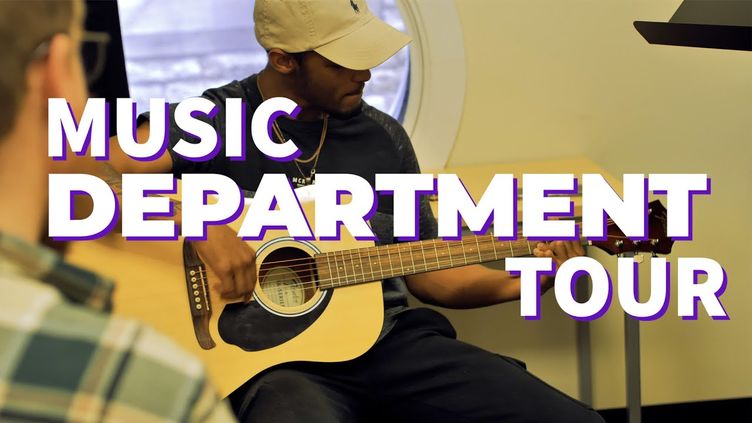Music Performance Studies MA
School of Languages, Arts and Societies,
Faculty of Arts and Humanities
-
Start date
September 2025 -
Duration
1 year 2 years -
Attendance
Full-time Part-time
Explore this course:
Book now for our online postgraduate open day on Wednesday 30 April 2025.

Course description
This course is designed to help you build the stylistic awareness and advanced techniques to perform classical music at concert level.
Through workshops, masterclasses and one-to-one lessons with specialist tutors, you will hone your abilities as both a solo and ensemble performer, culminating in a public recital at the end of your course. You can either choose to take a piano performance pathway or instrumental performance pathway.
You will have the opportunity to engage in modules that develop your understanding of performance as a research informed discipline, whilst also having the opportunity to collaborate on creative projects with students from other programmes.
The department plays an important role in Sheffield's thriving cultural life, and students have frequent opportunities to perform for the University of Sheffield Concerts, a concert series that hosts varied performances from world-wide professional musicians throughout the year.
Sheffield is celebrated as one of the UK's leading music cities, with dozens of major venues. The city benefits from regular visits from the Halle and Royal Liverpool Philharmonic Orchestras, the nationally important Music in the Round chamber music organisation, and a rich programme of musicals, ballets and operas at the Crucible and Lyceum theatres. Sheffield is particularly known for its folk scene. Our students regularly take part in gigs at smaller venues across the city, as well as the Yellow Arch Studios.
How to apply
You can choose to take a piano performance pathway or an instrumental performance pathway. Please select the relevant course on the application form.
You'll need to provide a portfolio with your application.
Accreditation
We are an All-Steinway School.
Modules
You will select either the piano or the non-piano pathway.
Core modules:
- Advanced Ensemble Performance Skills
-
This module aims to develop students' ensemble performance skills to an advanced level by taking a critical and reflective perspective on one's performance in an ensemble context, considering the role of musicians in accompaniment and chamber music settings, and by researching relevant aspects of ensemble performance related to repertoire, musical communication, and performance expression. This module has an extensive practical component with students working with other MA and UG students towards a 15-minute recital examination. There is also a 2000-word portfolio including a critical reflection on musical communication, the rehearsal process and the repertoire choices with reference to existing performances.
30 credits - Research and Communication Skills A
-
Research and Communication Skills A and B together comprise linked modules delivered in collaboration with the English Language Teaching Centre, directed at all students who wish to work on research and English communication skills - written and oral, in order to reach a variety of audiences interested in music and music research.
15 credits
Research and Communication Skills A runs through Semester 1 covering foundational research skills, including generating focussed research topics; literature search; critical reading; quotation, paraphrasing and summarising; citation; organising information and building academic arguments; and structuring an essay.
Research and Communication Skills B runs through Semester 2, and focuses on developing more advanced critical skills, using evidence, and written and oral communication in a variety of genres and styles. Assessments for these modules provide opportunities to improve academic research and writing skills, which can benefit performance in other modules. They also offer the opportunity to engage with a broad spectrum of written and oral communication, useful for academic and professional contexts - Research and Communication Skills B
-
Research and Communication Skills A and B together comprise linked modules delivered in collaboration with the English Language Teaching Centre, directed at all students who wish to work on research and English communication skills - written and oral, in order to reach a variety of audiences interested in music and music research. Research and Communication Skills A runs through Semester 1 covering foundational research skills, including generating focussed research topics; literature search; academic reading; quotation, paraphrasing and summarising; citation; organising information and arguments; and structuring an essay. Research and Communication Skills B runs through Semester 2, and focusses on developing critical skills, using evidence, and written and oral communication in a variety of genres and styles. Assessments for these modules provide opportunities to improve academic research and writing skills, which can benefit performance in other modules. They also offer the opportunity to engage with a broad spectrum of written and oral communication, useful for academic and professional contexts.
15 credits
Piano pathway - you will take:
- Historically-Informed Piano Performance
-
This module will introduce students to historically-informed performance practice as a core component of the performance of western classical music. By engaging with primary source material, scholarly research, recordings and live performances, students will approach piano performance as a research-informed discipline. The module will include a mixture of lectures and performance workshops, , and will culminate with a performance presentation of a programme and topic chosen by the student.
30 credits - Piano Recital
-
This unit constitutes a practical examination of a cross-section where each student will explore and investigate appropriate styles of interpretation and performance for a representative range of repertoire, from the baroque period to the present day, the whole informed by reference to recent musicological scholarship and current theories relating to piano performance practice. Work will be supported and supplemented by individual piano tuition. A 45-minute public piano recital demonstrating keen stylistic awareness, accomplished technical control, imaginative use of colour and texture and highly communicative. The student will engage with the audience in expressing their interpretations of chosen repertoire at a professional standard.
60 credits
Non-piano pathway - you will take:
- Historically-Informed Performance
-
This module will introduce students to historically-informed performance practice as a core component of the performance of western classical music. By engaging with primary source material, scholarly research, recordings and live performances, students will approach performance as a research-informed discipline. The module will include a mixture of lectures and performance workshops and will culminate with a performance presentation of a programme and topic chosen by the student.
30 credits - Recital
-
This unit constitutes a practical examination of a cross-section where each student will explore and investigate appropriate styles of interpretation and performance for a representative range of repertoire, from the classical period to the present day, the whole informed by reference to recent musicological scholarship and current theories relating to performance practice. Work will be supported and supplemented by individual instrumental institution. If preferred, a themed recital may be programmed. A 45-minute public recital demonstrating keen stylistic awareness, accomplished technical control, imaginative use of colour and texture and highly communicative. The student will engage with the audience in expressing their interpretations of chosen repertoire at a professional standard.
60 credits
Optional modules - both pathways:
- Critical Listening and the Musical Work
-
Students will consider recordings across a range of genres from European and American music to develop their critical listening skills and understanding of musical works. Classes will cover broader questions in the first half of the module, giving way to focused case studies in the second.
15 credits
Key issues may include:
what is a musical work?;
what is critical listening?;
scores and editions;
positionality;
types and values;
taste and recordings;
reception of recordings;
recording over time;
and other issues and ideas in musical listening.
Weekly listening and research tasks will contribute to an independent project, which will be assessed through a presentation and short essay. - Critical Listening and the Musical Work
-
Students will consider recordings across a range of genres from European and American music to develop their critical listening skills and understanding of musical works. Classes will cover broader questions in the first half of the module, giving way to focused case studies in the second.
30 credits
Key issues may include:
what is a musical work?;
what is critical listening?;
scores and editions;
positionality;
types and values;
taste and recordings;
reception of recordings;
recording over time;
and other issues and ideas in musical listening.
Weekly listening and research tasks will contribute to an independent project, which will be assessed through a presentation and short essay. - Critical Musicology
-
This unit acts as an introduction to key trends and figures in musicology from the mid-twentieth century to the present day. Students will learn techniques and skills related to the literature in the field, and will employ them in an essay on a topic of their own choice.
30 credits - Topics in Musicology
-
This unit gives students the opportunity to develop skills and knowledge in a focused area of musicolgy. Students will explore the literature related to a specific topic in depth, and will write an essay that responds to the current state of the literature in this area. Topics offered will be in line with staff research interests, but the exact number and selection of topics will depend on student demand.
30 credits - Applied Music Psychology: Education, Community and Health
-
This module explores the psychology of music in a variety of settings, from the everyday uses of music to music in education and in therapeutic settings. The emphasis in this module lies in two related areas: the use of music psychology to help solve the practical problems of people's lives (in terms of wellbeing, therapy, education and development) and also to explore music as a social phenomenon, that is understanding the psychology of music as a social and interactive facet of human life.
15 credits - Applied Music Psychology: Education, Community and Health
-
This module explores the psychology of music in a variety of settings, from the everyday uses of music to music in education and in therapeutic settings. The emphasis in this module lies in two related areas: the use of music psychology to help solve the practical problems of people's lives (in terms of wellbeing, therapy, education and development) and also to explore music as a social phenomenon, that is understanding the psychology of music as a social and interactive facet of human life.
30 credits - Principles of Music Industry Leadership
-
The module consists of weekly lectures and seminars, each of which is devoted to exploring key principles underpinning successful music management practice. Thus for example seminars will focus upon music policy, digital rights revenues and audience research and engagement. The module will give students the opportunity to investigate the principle(s) of most interest to them in the context of a specific management environment such as the grant-in-aid, independent and global music sectors. The intention of the module is to enable students to broadly identify multiple principles in context and specifically apply one to a chosen specialist area.
30 credits - Strategies for Funding Music and The Arts
-
This module provides a practical exploration of funding within the music and arts sectors, equipping students with the knowledge and skills to identify funding opportunities, create compelling grant applications, and understand the nuances of monitoring and evaluation. Through a series of lectures, students will dissect current market trends in arts funding, learn quantitative and qualitative research methods for evaluation, and master the art of report writing. The module aims to demystify the process of securing funding by offering step-by-step guidance on developing successful applications, from initial research to final submission. Emphasis will be placed on understanding funders' criteria, budgeting, and the critical skill of effectively presenting proposals, ensuring students are well-prepared to navigate the competitive landscape of arts funding.
15 credits - Performing South Asian Rhythm
-
The unit provides an opportunity to integrate practice in an unfamiliar musical genre. Taught in practical classes, the unit will focus on the music of one tradition hitherto unfamiliar to the class in question, requiring them to learn vocal or instrumental performance in that style. Students will back up their practice-based understanding of the world music tradition with an online learning diary and theoretical knowledge derived from the ethnomusicological literature. Their practical learning leads to a performance examination.
30 credits
The content of our courses is reviewed annually to make sure it's up-to-date and relevant. Individual modules are occasionally updated or withdrawn. This is in response to discoveries through our world-leading research; funding changes; professional accreditation requirements; student or employer feedback; outcomes of reviews; and variations in staff or student numbers. In the event of any change we will inform students and take reasonable steps to minimise disruption.
Open days
Become part of our community of talented postgraduate taught students. Register now to join us at our online open day on Wednesday 30 April 2025.
Duration
- 1 year full-time
- 2 years part-time
Teaching
The course is taught through lectures, workshops and tutorials. These are combined with departmental study days and extracurricular individual instrumental or vocal tuition, professional workshops, and performance opportunities, all of which makes for a stimulating and supportive study environment.
Department of Music students study at the heart of the campus in our Jessop Building, Soundhouse and performance facilities. We timetable teaching across the whole of our campus.
- Learn more about your supervisors
-
Changes to the teaching staff on the programme are possible, but are likely to include:
Assessment
You'll be assessed through practical, experiential and theoretical methods that include performances, presentations and essays. You will work towards a final recital at the end of the course, and written essays will assess your knowledge of a broad range of current artistic practices along with your skills in evaluation, analysis and criticism, information organisation and writing.
Your career
Many of our graduates have found success in the music profession as performers, while a large number have gone onto teach or establish their own music freelance business. Others have stayed to continue their studies at PhD level, or taken up offers to study further at leading music conservatoires.
School
School of Languages, Arts and Societies
Our department ethos combines high achievement with a sense of community and a shared passion for music. Our internationally recognised research informs our high-quality teaching and our student experience is collaborative, supportive and inspiring.
Sheffield is celebrated as one of the UK's leading music cities, with dozens of major venues from the City Hall and Crucible to Yellow Arch Studios and the Foundry, covering all music genres. This brings with it a host of opportunities for our students to get involved in professional music-making of the highest quality.
We work closely with the University's Concerts Series and oversee ensembles such as the Symphony and Chamber Orchestras, the Chamber Choir and the Folk Group, so our MA students have the opportunity to perform and develop ensemble skills with their peers.
Student profiles

Studying a performance-based masters in a university where there are experts in other areas is a great opportunity. Being able to address my performance with new perspectives as a result of cross-specialisation input has brought new ideas and freshness to my own approach as a musician.
Alison York
MA Music Performance Studies
Entry requirements
Minimum 2:1 undergraduate honours degree in a relevant subject.
Subject requirements
We accept degrees where music is a named component.
Please note this course is not suitable for those with non-classical music degrees, such as jazz or pop.
We may also consider other degree subjects if you can evidence engagement with music, eg through modules studied, professional or amateur music performance etc.
Provide a portfolio with your application
When you apply you'll need to provide a portfolio in the form of a video. It must include two contrasting pieces of different styles and eras that demonstrate your expressive and technical flexibility.
Classical singers should choose works in two different languages. The portfolio should be approximately 20 minutes and can be uploaded in separate videos.
To submit your portfolio, you should do one of the following:
- Upload your video recordings with your postgraduate online application.
- Provide an online link to your performance portfolio in your postgraduate online application.
English language requirements
IELTS 6.5 (with 6 in each component) or University equivalent
If you have any questions about entry requirements, please contact the school/department.
Fees and funding
Alumni discount
Save up to £2,500 on your course fees
Are you a Sheffield graduate? You could save up to £2,500 on your postgraduate taught course fees, subject to eligibility.
Apply
You can apply now using our Postgraduate Online Application Form. It's a quick and easy process.
The school running this course will change its name before September 2025. On the online application form, please select Faculty of Arts and Humanities and School of Languages, Arts and Societies when applying for this course.
Contact
Any supervisors and research areas listed are indicative and may change before the start of the course.
Recognition of professional qualifications: from 1 January 2021, in order to have any UK professional qualifications recognised for work in an EU country across a number of regulated and other professions you need to apply to the host country for recognition. Read information from the UK government and the EU Regulated Professions Database.







